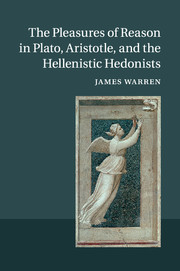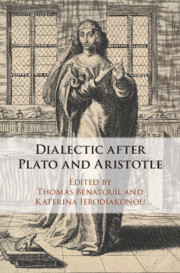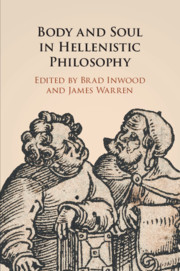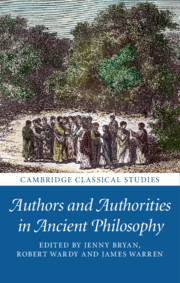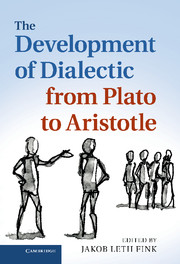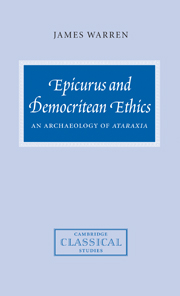The Pleasures of Reason in Plato, Aristotle, and the Hellenistic Hedonists
£30.99
- Author: James Warren, University of Cambridge
- Date Published: October 2017
- availability: Available
- format: Paperback
- isbn: 9781107631595
£
30.99
Paperback
Other available formats:
Hardback, eBook
Looking for an inspection copy?
This title is not currently available on inspection
-
Human lives are full of pleasures and pains. And humans are creatures that are able to think: to learn, understand, remember and recall, plan and anticipate. Ancient philosophers were interested in both of these facts and, what is more, were interested in how these two facts are related to one another. There appear to be, after all, pleasures and pains associated with learning and inquiring, recollecting and anticipating. We enjoy finding something out. We are pained to discover that a belief we hold is false. We can think back and enjoy or be upset by recalling past events. And we can plan for and enjoy imagining pleasures yet to come. This book is about what Plato, Aristotle, the Epicureans and the Cyrenaics had to say about these relationships between pleasure and reason.
Read more- Provides a new account of the relationship between pleasure and reason in ancient philosophy
- Offers fresh discussion of some important and controversial passages in major ancient philosophical works
- Ranges across important texts by Plato and Aristotle and the philosophy of Epicurus and the Cyrenaics
Reviews & endorsements
'Warren perfects the virtues exemplified in J. C. B. Gosling and C. C. W. Taylor, The Greeks on Pleasure, thanks to his historical accuracy, his subtle analysis of metaphors and analogies (consider, paradigmatically, the weighing and measuring of pleasures and pains in his chapter 5) and of other literary elements in the works he reads. He treads carefully whenever needed, and nurtures the sensitivity for aesthetic enjoyments, although they go beyond the scope of this inquiry. Consequently, I highly recommend this book to all specialists in ancient philosophy as well as budding ancient philosophy students. Both groups will benefit from experiencing anew, or for the first time, the understanding that trailblazing contributions do not emerge primarily from proposing a new exegesis of this or that line of text.' Georgia Mouroutsou, Bryn Mawr Classical Review
Customer reviews
Not yet reviewed
Be the first to review
Review was not posted due to profanity
×Product details
- Date Published: October 2017
- format: Paperback
- isbn: 9781107631595
- length: 246 pages
- dimensions: 228 x 152 x 14 mm
- weight: 0.38kg
- contains: 1 b/w illus.
- availability: Available
Table of Contents
1. Introduction: the pleasures of reason
2. Plato on the pleasures and pains of knowing
3. Aristotle on the pleasures of learning and knowing
4. Epicurus and Plutarch on pleasure and human nature
5. Measuring future pleasures in Plato's Protagoras and Philebus
6. Anticipation, character, and piety in Plato's Philebus
7. Aristotle on the pleasures and pains of memory
8. Epicureans and Cyrenaics on anticipating and recollecting pleasures
9. Epilogue.
Sorry, this resource is locked
Please register or sign in to request access. If you are having problems accessing these resources please email [email protected]
Register Sign in» Proceed
You are now leaving the Cambridge University Press website. Your eBook purchase and download will be completed by our partner www.ebooks.com. Please see the permission section of the www.ebooks.com catalogue page for details of the print & copy limits on our eBooks.
Continue ×Are you sure you want to delete your account?
This cannot be undone.
Thank you for your feedback which will help us improve our service.
If you requested a response, we will make sure to get back to you shortly.
×
